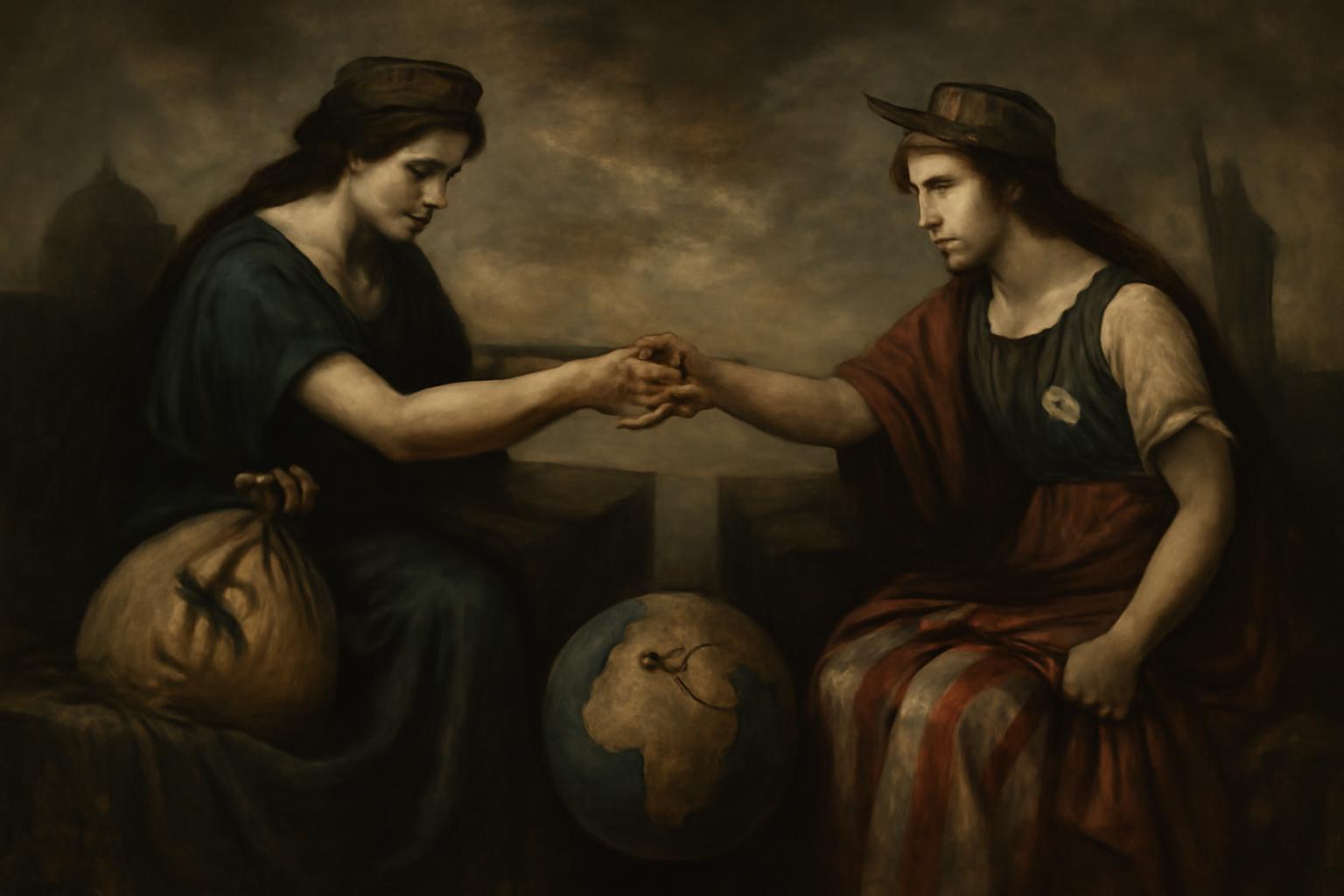A faint and chilling air washes over the field of statesmen, as if the very gods had turned their gaze from Europe’s fraught assembly—caught, like a figure from the house of Atreus, between Scylla and Charybdis. The ancient struggle—commerce and conquest—is reanimated in the modern cloaks of tariffs and treaties. Across the Atlantic, history’s once-mighty cultural siblings, Europe and America, now stand at an impasse, sullenly measuring the weight of iron and wine with the scales of expedience and mistrust. President Trump, with all the braggadocio of an errant Agamemnon, demands tribute from his erstwhile allies, setting import duties first to 10%, then threatening the Minotaur’s appetite with 30% punishment, if the captive Athenian does not dance.
Amidst these stakes, EU Commission President Ursula von der Leyen treads onto Scottish earth, where hopes and misgivings coil in equal measure. A "historic" accord is whispered—half chance, half curse—yet the German delegation, schooled in the lessons of Sisyphus, prepares to push its battered stone uphill once again, for all their striving will end in defeat or concession. Diplomats speak of a 15% tariff, a piecemeal truce bathed in the false light of compromise, not unlike the tragic oaths sworn at the doomed walls of Troy.
No matter the outcome, Europe’s blood is extracted in ounces and gallons; the German factories, those proud repositories of Faust’s ambition, see the shadow of Nemesis fall across assembly lines and workbenches. Job cuts, competitiveness lost, a civilization’s sinews slackening beneath the weight of forced submission or economic isolation—this is the very spectacle Nietzsche recognized in the twilight of the idols: the slow, inexorable erosion of will, under the mirage of “progress” and “cooperation.” Indeed, both sides are prepared to deepen the wound with retaliatory tariffs, doubled and redoubled, like Orestes haunted by the Furies, unable to escape the consequences of ancient hubris.
What is left of the West in such an hour? We gather at the margins, mere epigoni, as the drama unfolds not in the stoa or the forum, but behind the screens of negotiation rooms and in numbers on trade ledgers. The tragic insight is unescapable: that all efforts to salvage prosperity devolve into barren arithmetic, shorn of any vision of a common destiny or heroic purpose. The vital spirit—once Olympian, now merchant—is mortgaged away for technicalities and self-preservation, even as the pillars of shared cultural memory crumble into shallow commercial calculus.
We have become, as Nietzsche foresaw, “last men,” blinking for comfort, incapable of what is noble or dangerous; the world-spirit, weary of striving, surrenders to managed decline. Europe and America, siblings once in the mighty lineage of Athens and Rome, now haggle bitterly, not with the radiant, tragic dignity of Oedipus facing his doom, but like actors consigned to a third-rate parody, their lines mere echoes of vanished grandeur. Let us lament—what else is fit, as the curtain falls? For there are no gods left to stir us to greatness; only accountants, only tariffs, only the cold arithmetic of defeat.
